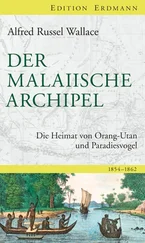Alfred Wallace - Travels on the Amazon
Здесь есть возможность читать онлайн «Alfred Wallace - Travels on the Amazon» — ознакомительный отрывок электронной книги совершенно бесплатно, а после прочтения отрывка купить полную версию. В некоторых случаях можно слушать аудио, скачать через торрент в формате fb2 и присутствует краткое содержание. Жанр: Путешествия и география, foreign_antique, foreign_prose, на английском языке. Описание произведения, (предисловие) а так же отзывы посетителей доступны на портале библиотеки ЛибКат.
- Название:Travels on the Amazon
- Автор:
- Жанр:
- Год:неизвестен
- ISBN:нет данных
- Рейтинг книги:4 / 5. Голосов: 1
-
Избранное:Добавить в избранное
- Отзывы:
-
Ваша оценка:
- 80
- 1
- 2
- 3
- 4
- 5
Travels on the Amazon: краткое содержание, описание и аннотация
Предлагаем к чтению аннотацию, описание, краткое содержание или предисловие (зависит от того, что написал сам автор книги «Travels on the Amazon»). Если вы не нашли необходимую информацию о книге — напишите в комментариях, мы постараемся отыскать её.
Travels on the Amazon — читать онлайн ознакомительный отрывок
Ниже представлен текст книги, разбитый по страницам. Система сохранения места последней прочитанной страницы, позволяет с удобством читать онлайн бесплатно книгу «Travels on the Amazon», без необходимости каждый раз заново искать на чём Вы остановились. Поставьте закладку, и сможете в любой момент перейти на страницу, на которой закончили чтение.
Интервал:
Закладка:
Wishing to obtain specimens of a tree called Caripé, the bark of which is used in the manufacture of the pottery of the country, we inquired of Isidora if he knew such a tree, and where it grew. He replied that he knew the tree very well, but that it grew in the forest a long way off. So one fine morning after breakfast we told him to shoulder his axe and come with us in search of the Caripé,—he in his usual dishabille of a pair of trousers,—shirt, hat, and shoes being altogether dispensed with in this fine climate; and we in our shirt-sleeves, and with our hunting apparatus across our shoulders. Our old conductor, though now following the domestic occupation of cook and servant of all work to two foreign gentlemen, had worked much in the forest, and was well acquainted with the various trees, could tell their names, and was learned in their uses and properties. He was of rather a taciturn disposition, except when excited by our exceeding dulness in understanding what he wanted, when he would gesticulate with a vehemence and perform dumb-show with a minuteness worthy of a more extensive audience; yet he was rather fond of displaying his knowledge on a subject of which we were in a state of the most benighted ignorance, and at the same time quite willing to learn. His method of instruction was by a series of parenthetical remarks on the trees as he passed them, appearing to speak rather to them than to us, unless we elicited by questions further information.
"This," he would say, "is Ocöóba, very good medicine, good for sore-throat," which he explained by going through the action of gargling, and showed us that a watery sap issued freely on the bark being cut. The tree, like many others, was notched all over by the number of patients who came for the healing juice. "This," said he, glancing at a magnificent tall straight tree, "is good wood for houses, good for floors; call it Quaröóba." "This," pointing to one of the curious furrowed trees that look as if a bundle of enormously long sticks had grown into one mass, "is wood for making paddles;" and, as we did not understand this in Portuguese, he imitated rowing in a canoe; the name of this was Poetiéka. "This," pointing to another large forest-tree, "is good wood for burning, to make charcoal; good hard wood for everything,—makes the best charcoal for forges," which he explained by intimating that the wood made the fire to make the iron of the axe he held in his hand. This tree rejoiced in the name of Nowará. Next came the Caripé itself, but it was a young tree with neither fruit nor flowers, so we had to content ourselves with specimens of the wood and bark only; it grew on the edge of a swamp filled with splendid palm-trees. Here the Assai Palm, so common about the city, reached an enormous height. With a smooth stem only four inches in diameter, some specimens were eighty feet high. Sometimes they are perfectly straight, sometimes gently curved, and, with the drooping crowns of foliage, are most beautiful. Here also grew the Inajá, a fine thick-stemmed species, with a very large dense head of foliage. The undeveloped leaves of this as well as many other kinds form an excellent vegetable, called here palmeto , and probably very similar to that produced by the cabbage-palm of the West Indies. A prickly-stemmed fan-leaved palm, which we had observed at the mills, was also growing here. But the most striking and curious of all was the Paxiuba, a tall, straight, perfectly smooth-stemmed palm, with a most elegant head, formed of a few large curiously-cut leaves. Its great singularity is, that the greater part of its roots are above ground, and they successively die away, fresh ones springing out of the stem higher up, so that the whole tree is supported on three or four stout straight roots, sometimes so high that a person can stand between them with the lofty tree growing over his head. The main roots often diverge again before they reach the ground, each into three or more smaller ones, not an inch each in diameter. Though the stem of the tree is quite smooth, the roots are thickly covered with large tuberculous prickles. Numbers of small trees of a few feet high grow all around, each standing on spreading legs, a miniature copy of its parent. Isidora cut down an Assai palm, to get some palmeto for our dinner; it forms an agreeable vegetable of a sweetish flavour. Just as we were returning, we were startled by a quiet remark that the tree close by us was the Seringa, or India-rubber-tree. We rushed to it, axe in hand, cut off a piece of bark, and had the satisfaction to see the extraordinary juice come out. Catching a little in a box I had with me, I next day found it genuine india-rubber, of a yellowish colour, but possessing all its peculiar properties.
It being some saint's day, in the evening a fire was lit in the road in front of our house, and going out we found Isidora and Vincente keeping it up. Several others were visible in the street, and there appeared to be a line of them reaching to the city. They seemed to be made quite as a matter of business, being a mark of respect to certain of the more illustrious saints, and, with rockets and processions, form the greater part of the religion here. The glorious southern constellations, with their crowded nebulæ, were shining brilliantly in the heavens as the fire expired, and we turned into our hammocks well satisfied with all that we had seen during the day.
July 4th. —The vegetation now improved in appearance as the dry season advanced. Plants were successively budding and bursting their blossoms, and bright green leaves displaced the half-withered ones of the past season. The climbers were particularly remarkable, as much for the beauty of their foliage as for their flowers. Often two or three climb over one tree or shrub, mingling in the most perplexing though elegant confusion, so that it is a matter of much difficulty to decide to which plant the different blossoms belong, and should they be high up it is impossible. A delicate white and a fine yellow convolvulus were now plentiful; the purple and yellow trumpet-flowers were still among the most showy; and some noble thick-leaved climbers mounted to the tops of trees, and sent aloft bright spikes of scarlet flowers. Among the plants not in flower, the twin-leaved Bauhinias of various forms were most frequently noticed. The species are very numerous: some are shrubs, others delicate climbers, and one is the most extraordinary among the extraordinary climbers of the forest, its broad flattened woody stems being twisted in and out in a most singular manner, mounting to the summits of the very loftiest forest-trees, and hanging from their branches in gigantic festoons, many hundred feet in length. A handsome pink and white Clusia was now abundant, with large shining leaves, and flowers having a powerful and very fragrant odour. It grows not only as a good-sized tree out of the ground, but is also parasitical on almost every other forest-tree. Its large round whitish fruits are called "cebola braba" (wild onion), by the natives, and are much eaten by birds, which thus probably convey the seeds into the forks of lofty trees, where it seems most readily to take root in any little decaying vegetable matter, dung of birds, etc., that may be there; and when it arrives at such a size as to require more nourishment than it can there obtain, it sends down long shoots to the ground, which take root, and grow into a new stem. At Nazaré there is a tree by the road-side, out of the fork of which grows a large Mucujá palm, and on the palm are three or four young Clusia trees, which no doubt have, or will have, Orchideæ and ferns again growing upon them. A few forest-trees were also in blossom; and it was truly a magnificent sight to behold a great tree covered with one mass of flowers, and to hear the deep distant hum of millions of insects gathered together to enjoy the honeyed feast. But all is out of reach of the curious and admiring naturalist. It is only over the outside of the great dome of verdure exposed to the vertical rays of the sun that flowers are produced, and on many of these trees there is not a single blossom to be found at a less height than a hundred feet. The whole glory of these forests could only be seen by sailing gently in a balloon over the undulating flowery surface above: such a treat is perhaps reserved for the traveller of a future age.
Читать дальшеИнтервал:
Закладка:
Похожие книги на «Travels on the Amazon»
Представляем Вашему вниманию похожие книги на «Travels on the Amazon» списком для выбора. Мы отобрали схожую по названию и смыслу литературу в надежде предоставить читателям больше вариантов отыскать новые, интересные, ещё непрочитанные произведения.
Обсуждение, отзывы о книге «Travels on the Amazon» и просто собственные мнения читателей. Оставьте ваши комментарии, напишите, что Вы думаете о произведении, его смысле или главных героях. Укажите что конкретно понравилось, а что нет, и почему Вы так считаете.












